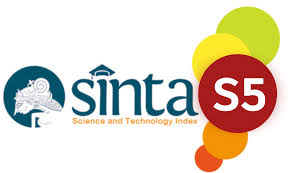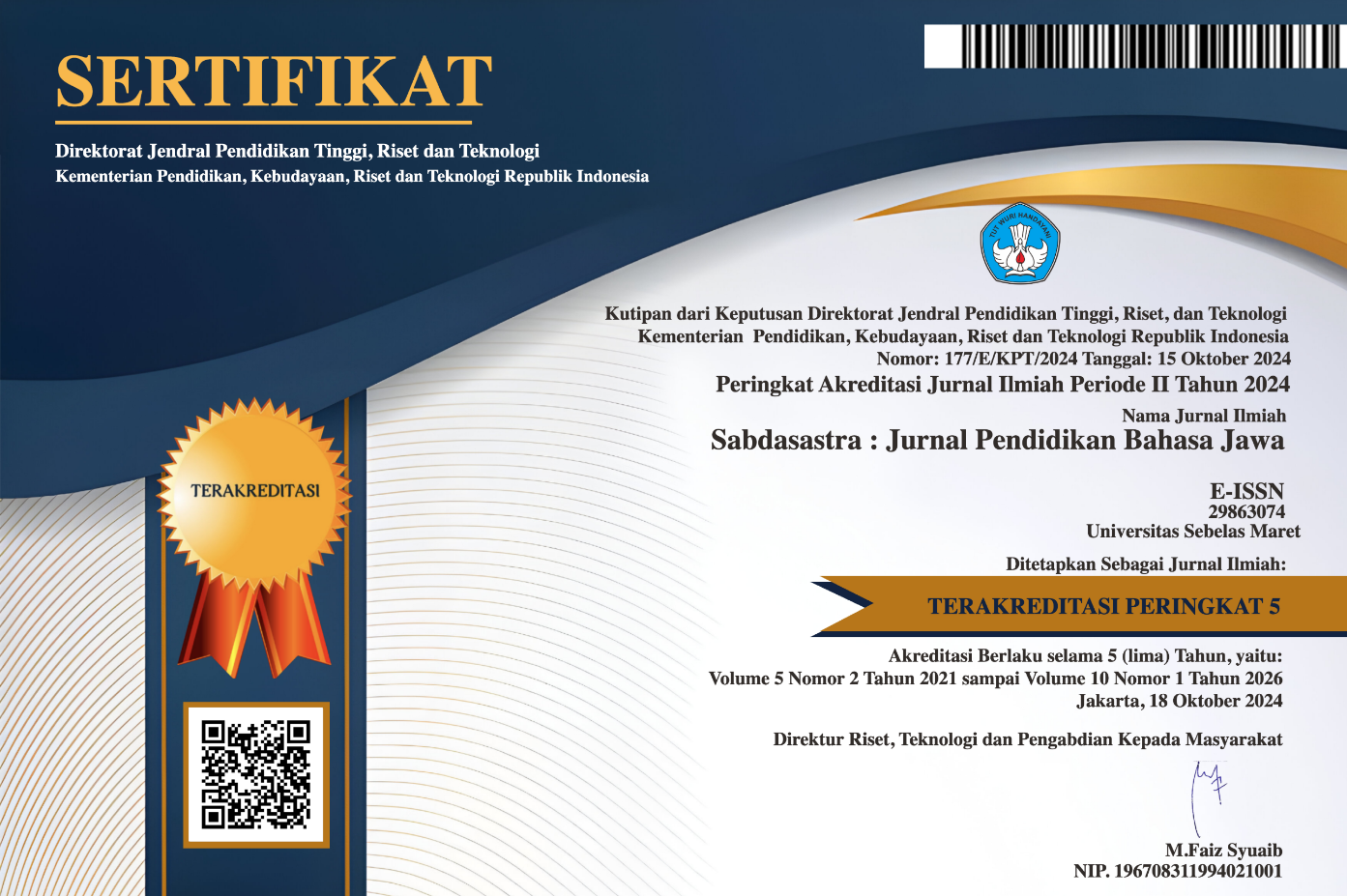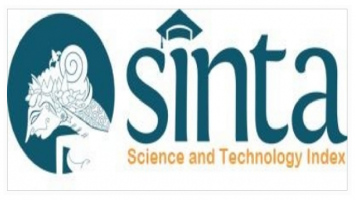Survei Pemahaman Leksikon Ekologis Bahasa Jawa Pada Mahasiswa PGSD Universitas Sanata Dharma (Tinjauan Ekologi Linguistik)
Abstract
This study examined the use of Lexicons related to ecological lexicons in Javanese that are commonly used by everyday students. This type of research according to Furchan (1982) was a qualitative descriptive research sub-category of survey research. Research subjects were 96 students from Java (Yogyakarta and Central Java). The instrument developed was a questionnaire. Validation of instruments using the expert judgment of Javanese linguists. The results showed students who were ecological lexicon in Javanese were 53.19%, students who did not understand the ecological lexicon of Javanese were 46.81%. More than half of the students still understand the meaning of the ecological lexicon of the Javanese language. The data was followed up with interviews. The results of the interview revealed that students' understanding of the meaning of the ecological lexicon was not entirely appropriate. Some ecological lexicons of Canada are no longer used in terms of the absence of the main factors. First, youth urbanization in Javanese society. Second, the number of speakers is getting smaller. Third, the changing natural factors, climate, and weather are commonly described by the ecological lexicon are not felt by the majority of Javanese people.
Keywords
Full Text:
PDFReferences
Subiyanto, A. (2013). Ekolinguistik: model analisis dan penerapannya. Jurnal Humanika. 18. 2. https://ejournal.undip.ac.id/index.php/humanika/article/view/5939
Fill, Alwin and Peter Muhlhausler, (2001) (Eds). The Ecolinguistic Reader: Language, Ecology, and Environment. London and New York: Continuum.
Furchan, Arief. (1982). Pengantar penelitian dalam pendidikan. Usaha Nasional : Surabaya.
Halliday, M.A.K. (1990). “New Ways of Meaning: The Challenge to Applied Linguistics”. Dalam Journal of Applied Linguistics 6 :7-36
Halliday, M.A.K. (2001). “New Ways of Meaning: The Challenge to Applied Linguistics”. Dalam Fill, A. dan Muhlhausler, P. The Ecolinguistics Reader: Language, Ecology, and Environment. London: Continuum
Haugen, E. (1972). “The Ecology of Language”. dalam Dil, A.S. (ed) The Ecology of Language: Essays by Einar Haugen. Stanford: Stanford University Press.
Haugen, E. (1972). “The Ecology of Language”. Dalam Fill, A. dan Muhlhausler, P. The Ecolinguistics Reader: Language, Ecology, and Environment. London: Continuum.
SIL International, Indonesia Branch. (2001). Languages of Indonesia. Jakarta: SIL International, Indonesia Branch.
Sinar, Tengku Silvana. (2010). ”Ungkapan Verbal Etnis Melayu dalam Pemeliharaan Lingkungan.” Disampaikan dalam International Seminar Language, Literature, 35 and Culture in Southeast Asia. Diselenggarakan oleh Prodi Linguistik USU dan Phuket Rajabhat University Thailand, Thailand 3-5 Juni 2010.
Steffensen, Sune Vork. (2007). “Language, Ecology and Society: An Introduction to Dialectical Linguistics”. Dalam Steffensen, S.V dan J. Nash (Eds). Language, Ecology and Society – a Dialectal Approach. London: Continuum.
Stewart, W.A. (1968). "A Socolinguistic Typology for Describing Multilingualism" dalam Fishman J.A. Readings in the Sociology of Language. The Hague: Mouton.
Refbacks
- There are currently no refbacks.










